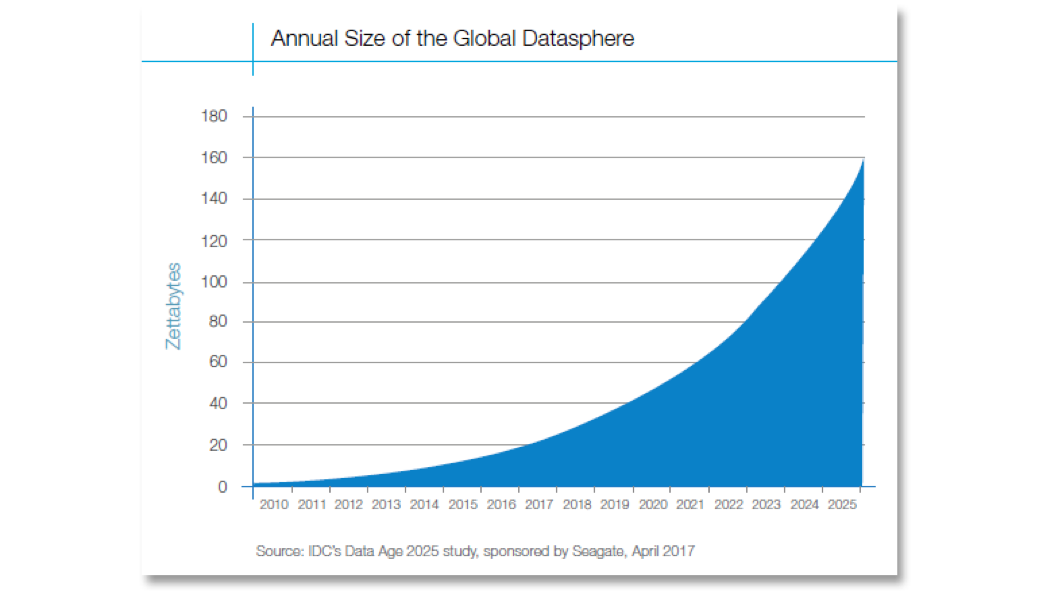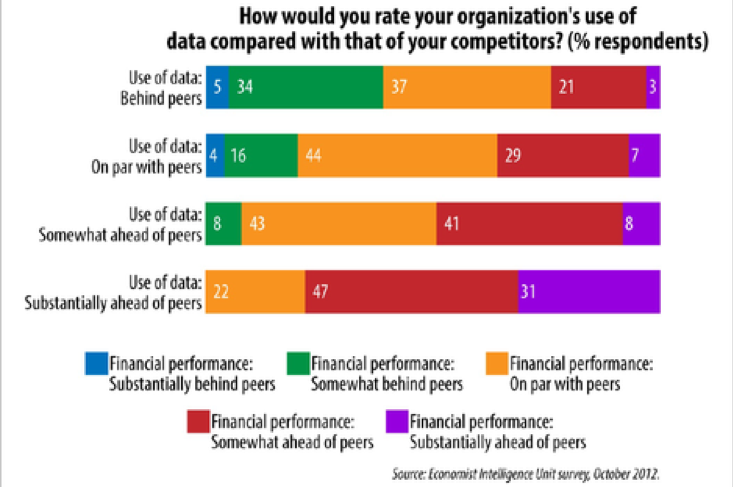

Updated January 2, 2025
When companies make data-driven decisions, they enhance customer experiences, improve productivity, identify new revenue streams, and maintain a competitive advantage.
To begin making data-driven decisions, business leaders must first lay the foundation to transform the company into a data-driven organization. This process starts with identifying your data sources, democratizing the data, leveraging Business Intelligence (BI) tools, and nurturing a culture of experimentation.
The fourth industrial revolution will be data-driven, incentivizing companies to build a robust foundation to support big data and analytics. Data-driven businesses need to efficiently collect, manage, and analyze data so they can make better business decisions and maintain a competitive advantage.
Looking for a Digital Marketing agency?
Compare our list of top Digital Marketing companies near you

A recent study suggests that we’re already on our way to achieving this: 48% of Fortune 1000 executives stated that their firms were producing measurable results from their big data investments, and nearly 81% characterized their big data investments as “successful.”
Research conducted by the Sloan School of Business found that businesses engaged in data-driven decision-making experienced a 6% increase in productivity and output.
Data-driven decision-making will impact both small businesses (i.e., those with less than five employees) and Fortune 500 companies across industries as the processes of data collection, analytics and interpretation improve.
This is because even the smallest companies generate data. For example, data can be gathered from the company website, the business’s social media channels, payment transactions, and customer reviews.
The insights derived from all these sources can help businesses make data-driven decisions that can enhance customer experiences, increase brand loyalty, create new revenue streams, boost productivity, improve operational efficiency, and reduce waste.

As you can see from the above, leveraging data to make “intelligent” data-driven decisions can position your business to perform substantially better (financially) than your peers.
So how do businesses make data-driven decisions? Here are 4 steps your business can take to start making data-driven decisions.
Businesses can collect and analyze data from both internal and external sources. If you haven’t done this before, it’s best to start with simple data, which can take the form of sales data, inventory, or customer records.
Businesses should prioritize purpose-driven data, which can vary between companies. Business leaders can achieve this by asking the right questions like “how do we reduce our operational expenses?” or “how do we better manage our inventory?”
By having a clear idea about the problem you’re going to solve, you can determine and align data sources that are critical to identifying your solution. Sometimes these data points can be difficult to find, but it’s worth the effort.
By democratizing data, you can empower employees across departments to access and analyze data, which eliminates the need to wait for data scientists to generate reports. In the long-term, this is a highly cost-effective approach to big data and analytics.
Businesses that enable employee-access to internal and external data are expected to double the value of their big data and analytics investment. If you nurture a working culture where anyone can become a citizen data scientist, employees will work together to find solutions to challenges.
When you provide access to data and give them user-friendly BI and analytics tools, you’ll be working in an environment where everyone is making data-informed analysis and decisions.
To get the best results, enterprises have to identify how they can improve their data management processes. This can be difficult when data is generated in real-time (both internally and externally) from multiple sources.
Small businesses and startups can quickly get overwhelmed if they are working in small teams juggling all of the responsibilities involved in processing data. Even if you empower a team of data scientists across departments, there might be moments when companies have to choose between data insights and actual production.
Luckily, there are some real-time dashboards and BI tools that can help businesses spend less time processing data and more time developing data-driven strategies.
Some leading BI tools include Microsoft Power BI, Tableau Desktop, and Zoho Reports.
The reports generated by these BI tools offer a holistic view of your business by visualizing key metrics. You’ll also be able to quickly identify opportunities to cross-sell or up-sell by looking at the results.
The best reports and dashboards are ones that are easy to read. The software should also be able to pull data from multiple sources and allow users to filter it down to key metrics. These tools also make it easy to track your employees’ efforts and wins.
Business leaders should also be able to conduct trend analysis to better understand trends and patterns across key metrics within the company. When you engage in this activity, management will have a better idea about which processes work and which need improvement.
For organizations to take full advantage of big data, they need to foster a culture of experimentation. This means that business leaders shouldn’t just provide employees with BI tools, they should also show them how to use these tools and experiment with them.
For example, you can conduct workshops to teach people how to test and measure various metrics. Once they know how to do it, you can show them how to apply these insights to become more effective.
This can only be achieved in a company that promotes experimentation. One way to promote organizational change is to hold people accountable and reward them for leveraging data to make better decisions.
It’s essential to keep the focus of the business on solving real problems. This means that you should prioritize finding solutions to relevant business problems and address them with the help of actionable insights.
Data will be the underlying force that drives businesses forward and will be critical to maintaining a competitive advantage and business relevance.
This makes it important for companies to lay the foundation for streamlining their data management processes and real-time analytics while developing an organizational culture that values data-driven decisions.
This process works best when we start by identifying the data sources, democratizing the data, leveraging BI tools, and nurturing a culture that values experimentation.
If you're still unsure how your business can make use of its data, consider hiring a business consulting firm.
 Graham Church has over 25 years of software development experience. He is the founder and managing director of CodeFirst.
Graham Church has over 25 years of software development experience. He is the founder and managing director of CodeFirst.


